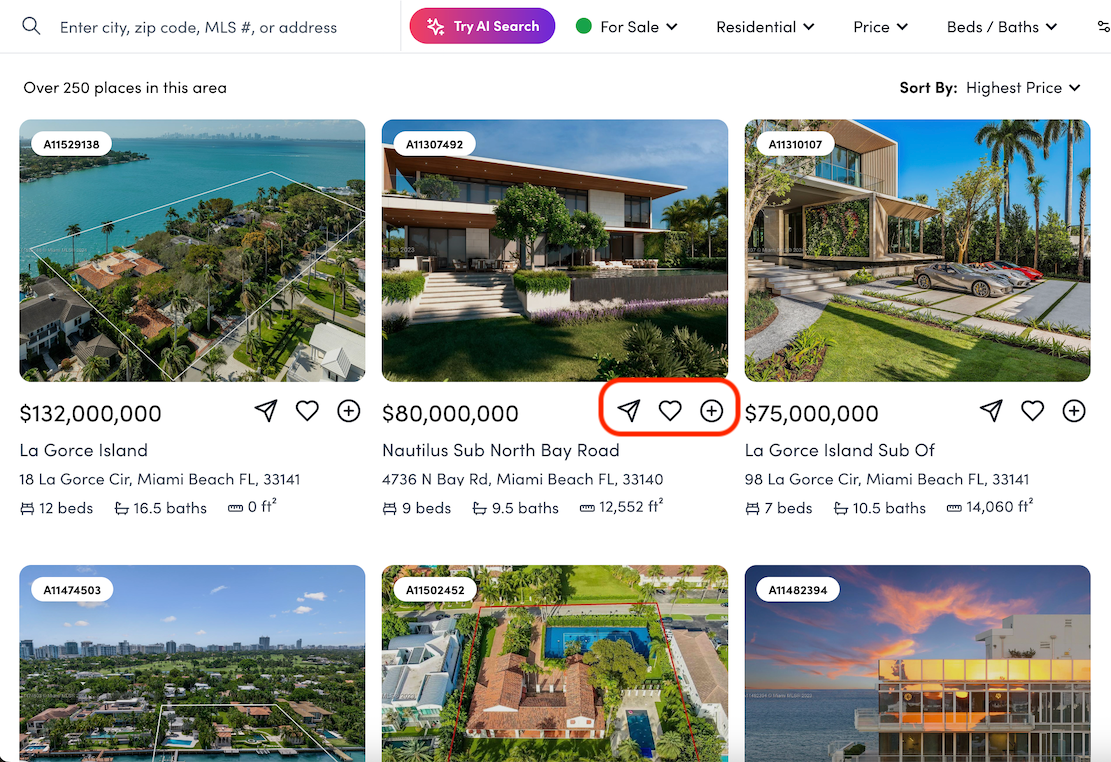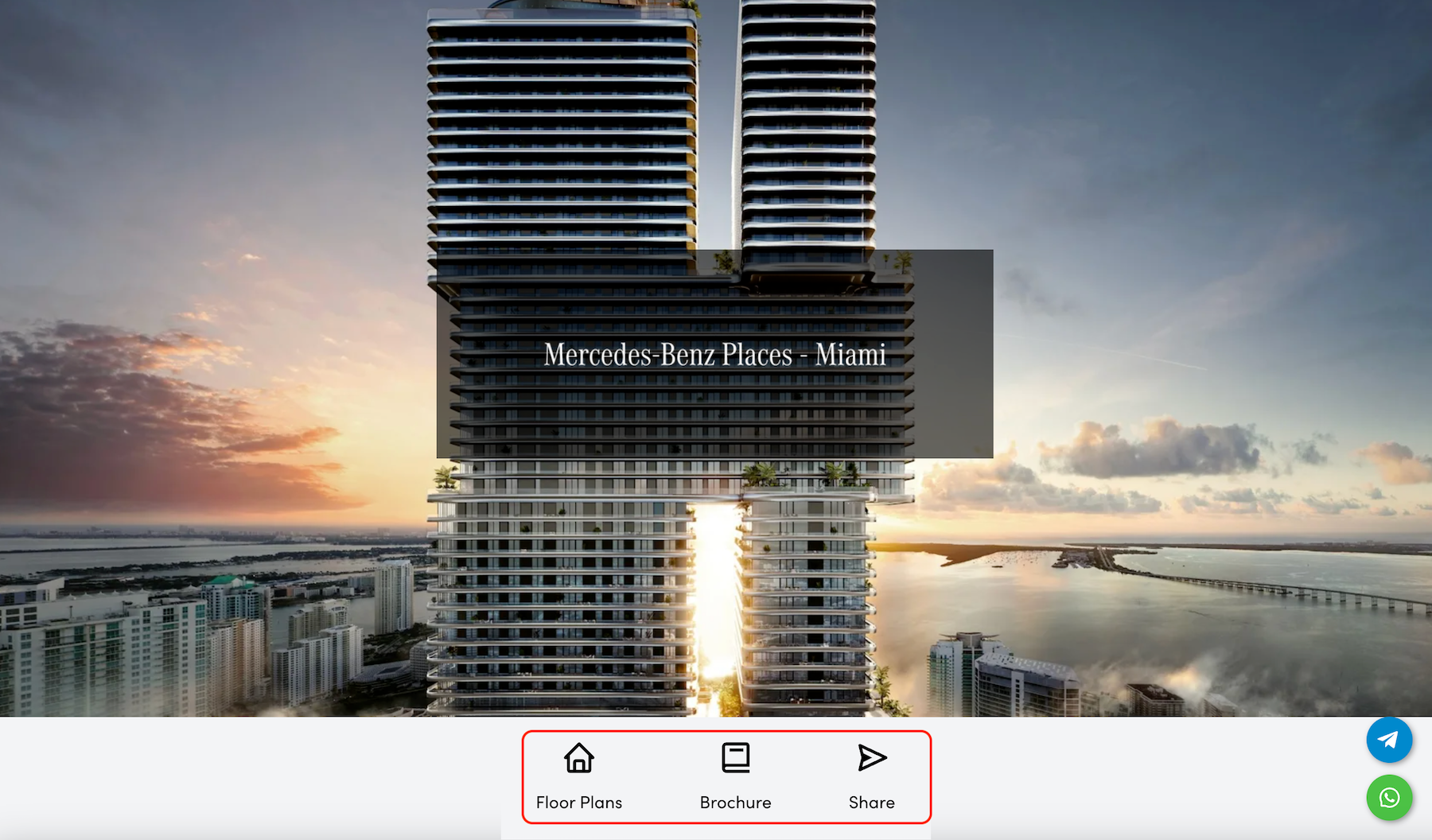Proven Real Estate Lead Generation Strategies for Market Mastery
Proven Real Estate Lead Generation Strategies for Market Mastery
Our no-nonsense guide reveals 21 actionable strategies ranging from digital savvy to networking and direct outreach—all aimed at amplifying your lead generation process. Engage with tested techniques that promise quantity and quality real estate leads that are more likely to convert into sales, solidifying your mark in the real estate realm.
Real Estate Lead Generation Key Takeaways
-
Embrace digital marketing strategies such as engaging video content, local SEO, social media presence, and Customer Relationship Management (CRM) tools to capture and nurture real estate leads.
-
Leverage personal connections and professional networking through industry events with other real estate agents, partnerships with local businesses, and reciprocal referrals to expand your influence and generate quality leads.
-
Combine creative content marketing, like virtual tours and downloadable resources, with traditional direct marketing tactics, like cold calling and print ads, to create a diverse and effective way to generate real estate leads.
Mastering Digital Outreach for Real Estate Lead Generation

In today’s digital age, the power of online platforms in shaping a real estate professional’s reach and influence cannot be overstated. Some key strategies for leveraging digital outreach include:
-
Video marketing that captures the essence of properties in a visually appealing manner
-
Utilizing local SEO to connect agents with prospect clients in specific locations to generate leads
-
Bidding on competitors’ brand keywords to position your listings above theirs and drive traffic to your site.
These tactics can be game-changers for becoming a market leader in the industry.
But the digital realm is not just about outreach; it’s equally about managing and nurturing leads. Here, the role of Customer Relationship Management (CRM) software and predictive analytics becomes paramount. These tools allow real estate agents to organize tracking and progress measurement, optimizing the lead generation process. Maintaining an engaging social media presence further consolidates leads, keeping prospects interested and hooked to your offerings.
Crafting Engaging Social Media Campaigns
When it comes to social media, it’s about more than just being present; it’s about being engaging. The key to crafting engaging real estate campaigns is selecting effective social media platforms and establishing diverse content pillars. From listings and testimonials to humorous posts and industry insights, the content shared on social media should be designed to engage both buyers and sellers.
Furthermore, maintaining an easily contactable profile, adhering to a calculated posting schedule, and ensuring a smooth post-click experience are all vital in achieving optimal visibility on social media. Strategic social media ads, integrated marketing tools, and performance metrics analysis can boost visibility and capture leads.
Optimizing Real Estate Websites for Lead Capture

A real estate professional’s website serves as a digital storefront, and just like a physical storefront, it needs to be attractive and welcoming. SEO is vital for attracting and converting website visitors into potential leads, especially those aiming for top listings in search results. Moreover, an excellent user experience and mobile responsiveness are vital to retaining visitor engagement and reducing bounce rates, positively impacting SEO.
Licensed real estate agent website with Home Valuation Tools

Landing pages for search engine optimization
Real estate websites can employ pop-up CTAs, ‘Click to Call’ features, and landing pages tailor-made for specific offers to enhance lead capture. A clear structure, easy-to-use property search functionality, and regular A/B testing for CTA effectiveness all contribute to a constant influx of leads and opportunities for optimization.

Leveraging Google Ads for Immediate Visibility
Google Ads provides a quick way to gain visibility in the market. Their targeting options are particular, encompassing demographics, affinity audiences, in-market segments, custom segments, life events, and location targeting, providing agents with the tools to reach the right audience. The primary types of Google Ads used in real estate include search, display, video, and local services ads, allowing agents to connect with users across different online behaviors and preferences.
To ensure effective lead generation, the performance of Google Ads must be regularly measured and optimized. Key Performance Indicators such as:
-
Impressions
-
Click-through rate (CTR)
-
Conversion rate
-
Cost-per-click (CPC)
-
Cost-per-action (CPA)
-
Quality score
Are vital to gauge performance. Furthermore, implementing a keyword strategy using negative and long-tail keywords helps filter out irrelevant searches. It attracts users closer to making real estate service decisions, increasing ad relevance and potential lead quality.
Innovative Networking Tactics for Generating Real Estate Leads

Most Do's in your Real Estate Business
While digital outreach is undoubtedly essential, never underestimate the power of personal connections. Networking within and outside the industry is crucial in lead generation. Here are some ways to build your network:
-
Attend real estate business conferences and industry events
-
Join professional organizations and associations
-
Assist real estate agent events and connect to those outside your immediate area
-
Attend local networking events and meetups
Building professional relationships can help grow your network and lead to new opportunities.
Trust is essential in real estate, and through networking, agents can cultivate trust with peers, which can lead to reciprocal referrals and strengthen their reputation as dependable professionals in their niche or location. This trust can also be enhanced by engaging in local events and open houses, connecting with the community, and gathering referrals.
Even participating in events unrelated to real estate, such as book clubs or fitness classes, can expand your networking sphere and generate leads.
Partnering with Local Businesses for Mutual Referrals
Local businesses can serve as powerful allies in your real estate business. By collaborating with local companies, agents can:
-
Tap into their customer bases for potential new leads
-
Become a client resource by connecting clients with reputable local businesses that can meet various needs, such as home repairs or legal services.
-
Enhance the range of client services they offer
Referral relationships with entities like mortgage brokers can be nurtured through mutual promotion on websites and social media and by offering special deals. These relationships require consistent engagement to ensure client satisfaction.
For a broader referral network, agents can build partnerships with various businesses, including cafes, bakeries, and mechanics, displaying promotional materials to increase exposure.
Nurturing Relationships with Other Agents for Cross-Referrals
Real estate is a competitive industry, but that doesn’t mean agents can’t support each other. Nurturing relationships with other agents can lead to cross-referrals, offering a win-win situation for all parties involved in the real estate business. Agents can also foster relationships with professionals in multiple real estate-related fields, such as lenders, home inspectors, and brokers, for additional cross-referrals.
Choosing a real estate referral partner involves assessing your professional circle and client needs to ensure mutual benefits. Such partnerships should be based on shared values and goals, and starting with immediate referrals can help establish a foundation of trust.
Direct Marketing Strategies for Quality Real Estate Leads
The tried and tested methods of traditional direct marketing, such as:
-
cold calling
-
door knocking
-
networking events
-
print advertising
Remain effective channels for generating real estate leads. Coupled with an approachable attitude and face-to-face contact, these channels can yield high-quality leads. In addition, direct response marketing can encourage potential leads to engage in immediate actions, such as property viewings or attending informational seminars.
Moreover, targeted direct mail campaigns can be a powerful tool in lead generation. For instance, they may target adults with elderly parents in senior living facilities, allowing agents to cater to potential leads' unique needs or situations. And let’s not forget the importance of preparing for a cold call. Practicing the pitch with a specialized script ensures confidence and clarity when communicating with potential leads. In this competitive market, partnering with lead generation companies and utilizing lead generation services can be a valuable asset for businesses.
Deploying Targeted Direct Mail Campaigns

Direct mail campaigns can be a surprisingly effective tool in the digital age, boasting an impressive open rate of up to 90%. This significantly outperforms the click-through rates of digital ads, making direct mail a valuable tool for personal engagement. Furthermore, millennials comprise a substantial third of home buyers and are more likely to respond to direct mail advertising, showing its relevance across age groups.
By adding a personal touch, such as handwritten notes, direct mail campaigns can resonate more with recipients, fostering a personal connection. Regularly sending market reports and personalized letters keeps agents at the forefront of potential buyers’ minds when considering real estate transactions. Moreover, services like ProspectsPLUS! can provide thousands of pre-designed templates, making it easy for agents to start direct mail campaigns.
Engaging Prospects with Cold Calling Techniques
While sometimes seen as outdated, cold calling can still be remarkably effective in the industry. 57% of agents consider it the best lead-generation technique. Successful cold calls often involve personalized references, such as mentioning recent local sales or mutual connections, which resonate more with prospects.
Scripts flexible enough to adapt to the flow of conversation can help deliver the agent’s critical messages without sounding robotic. And with automated text messages being faster and often better received compared to calls and emails, the lead generation process is further enhanced.
Offering a free property valuation during a call gives potential leads a valuable, no-commitment reason to engage further with the agent.
Creating Impactful Print Advertising
When creating impactful print advertising, it’s not just about the design; it’s also about the audience. With high response rates from consumers, print ads significantly outperform the click-through rates of digital ads. Trust is also higher in print media, with 82% of people trusting print when making purchasing decisions, especially important in real estate.
Effective real estate print ads combine visually appealing designs and high-quality images with incentives for potential leads to take action. Utilizing local publications like newspapers and magazines can help distribute content and listings effectively. The effectiveness of print ads can also be measured through tracking methods such as monitoring phone calls and website visits originating from the ads.
Building Credibility to Attract Real Estate Leads
In the real estate industry, reputation is everything. Building credibility is paramount in attracting real estate leads. Agents can leverage their sphere of influence—including family, friends, and colleagues—and engage with community members to enhance their reputation and generate leads. Blogging is an effective tool for agents to provide valuable information to clients, positioning themselves as credible sources of industry knowledge and attracting more leads.
Moreover, realtor professionals who invest in local public relations and share their expertise with local and online publications can build credibility as industry thought leaders. Showcasing client testimonials across various platforms demonstrates an agent’s commitment to professional service, reinforcing their trustworthiness and attracting additional leads.
Offering Expert Insights Through Blogging

Blogging is a powerful tool for showcasing knowledge and experience in the real estate industry. Agents can focus on topics highlighting their expertise and providing valuable insights to possible clients. Slower months can be utilized to send buyer’s or seller’s guides via blogs, providing helpful information that underscores the agent’s expertise in home buying or selling.
Authenticity in blogging is essential for lead generation strategies. Sharing personal experiences and unique insights helps differentiate agents from their competitors. Moreover, by answering standard buyer and seller questions, an agent’s blog can serve as a resource for local media, further establishing the agent as an expert in the field.
Lead Generation Strategies - Conducting Free Workshops and Webinars
Free workshops and webinars are a great way to share knowledge while attracting potential leads. Hosting live webinars allows agents to communicate directly with prospective clients from the comfort of their homes, leveraging topics such as renting vs. buying or saving for a down payment to offer valuable information. Using templates for webinars can streamline the creation of engaging content, while personal stories enhance the presentation, making it memorable for the audience.
Educational seminars for first-time homebuyers or investors enable agents to guide attendees through the buying process and address common questions, establishing the agent as an informative resource. Furthermore, collaborating with local experts like mortgage brokers or home inspectors during workshops and webinars can enrich the learning experience, offering in-depth information and attracting more participants.
Gaining Exposure Through Local Media Features
Local media features can significantly enhance an agent’s exposure. Collaborating with journalists and offering insights on real estate market trends can lead to media features that enhance an agent’s credibility. By being proactive and responsive when journalists seek industry insights, agents can establish themselves as go-to real estate experts for local media.
Building relationships with local journalists and becoming a trusted source can result in more frequent media mentions and opportunities for exposure. Agents can also utilize HARO (Help a Reporter Out) to connect with journalists seeking expert sources for their stories, leading to media exposure and lead generation.
Plus, writing press releases about noteworthy property listings or unique market data can capture the attention of local media and result in agent exposure.
Utilizing Technology and Automation in Lead Gen
In an era where technology permeates every aspect of our lives, it’s no surprise that it also plays a significant role in real estate lead generation. Implementing a CRM system aids realtors in:
-
Managing their sales process
-
Monitoring team performance
-
Maintaining accurate client data
-
Streamlining the lead management process
AI chatbots offer 24/7 availability, ensuring that property inquiries are addressed promptly and enhancing customer satisfaction and engagement.
Moreover, predictive analytic tools can analyze data to:
-
predict owners likely to sell their homes shortly, providing agents with a competitive edge in the market
-
streamline the lead gen process
-
allow realtors to manage and nurture leads more effectively.
Implementing CRM Tools to Manage Leads
CRM tools offer a range of benefits to realtors, including:
-
Setting up automation to segment leads and send personalized emails with the correct information at the right time
-
Centralizing lead data and identifying high-performing channels to streamline the sales process
-
Enabling agents to access data from any internet-connected device, enhancing mobility and flexibility
These tools can significantly improve efficiency and effectiveness in the real estate industry.
CRM automation tools can segment contact lists and personalize messages, increasing engagement rates and maintaining momentum in the lead nurturing process. CRM systems can also reduce missed opportunities and allow agents to target multiple audiences with optimized email marketing campaigns.
Capturing exclusive leads involves utilizing lead generation strategies such as generating leads by offering exclusive property listings or premium content to motivate website visitors to provide their information.
Employing AI Chatbots on Real Estate Platforms

Artificial Intelligence (AI) has made significant strides in recent years, and chatbots are one of its most practical applications in real estate. AI chatbots in real estate offer 24/7 availability, ensuring that property inquiries are addressed promptly, which enhances customer satisfaction and engagement. Chatbots can handle multiple inquiries simultaneously, providing scalable and efficient customer service.
These chatbots can:
-
Engage visitors by answering their inquiries and providing information
-
Capture their contact information for lead gen
-
Streamline the lead gen process by automating the initial stages of the customer journey
-
Allow human agents to focus on closing sales
Plus, AI-driven real estate chatbots provide personalized property recommendations based on user preferences and behavior, improving the user experience.
Adopting Predictive Analytics for Lead Identification
Predictive analytics is another powerful tool that can significantly enhance lead identification. Predictive analytics can forecast potential transactions by analyzing public records, demographics, online behavior, and financial and consumer data. This enables real estate agents to engage potential buyers and sellers when they are most likely to consider selling.
Predictive analytics provides agents with a competitive edge by identifying potential movers before the competition does. While it’s not 100% accurate, predictive analytics significantly increases efficiency and cost-effectiveness in targeting potential sellers, making it a valuable tool in the lead gen process.
Creative Content Marketing for Real Estate Lead Acquisition
In the real estate lead generation world, creative content marketing is a force to be reckoned with. Real estate professionals can use creative content like exclusive ebooks to attract potential buyers. Creative content can draw interest from potential real estate buyers, whether an ebook created in collaboration with interior designers, financial specialists, or a virtual tour offering an immersive property showcasing experience.
Producing Virtual Tours to Showcase Properties
Virtual tours offer a modern and engaging way to showcase properties. They provide a realistic and immersive way for potential buyers to experience a property remotely, saving them time and resources. Virtual tours can range from simple 3D walk-throughs to more elaborate 3D tours with full animation and 360-degree views, offering a wide range of options to cater to different client preferences.
Real estate agents can rely on specialized companies to create high-quality virtual tours, eliminating the need for them to have technical skills. Providing immersive, high-quality virtual house tours can serve as a lead magnet and showcase the property’s potential through virtual staging services.
Developing Downloadable Resources for Lead Magnets
Downloadable resources serve as effective lead magnets in real estate. These can include:
-
Guides
-
E-books addressing common real estate questions
-
Valuation tools
-
How-to manuals for exchanging contact details
Educational webinars on renting vs. buying can also be offered as downloadable content to generate leads by providing valuable video information.
Agents can attract leads with free, helpful resources by developing fundamental estate-related tools such as a checklist for agents or a mortgage calculator for homebuyers. These downloadable resources provide valuable information to clients while enabling real estate professionals to generate real estate leads by gathering contact information for lead generation.
Sharing Success Stories and Testimonials for Prospective Buyers
Success stories and testimonials are powerful tools in building credibility and attracting potential leads. Here are some tips for using testimonials effectively:
-
Feature testimonials prominently on the homepage to increase credibility and encourage visitor connection.
-
Request testimonials shortly after closing a transaction to capture the positive aspects of the experience.
-
Provide clients with direct links to review sites to make it easy for them to leave a testimonial.
These strategies will help you maximize testimonials and attract more seller leads.
Video testimonials can capture client enthusiasm effectively and, when shared on social media, provide greater engagement, while detailed and specific testimonials reinforce an agent’s commitment to client service. Success stories can be shared through blogs, focusing on properties and the location and community, providing evergreen content demonstrating the agent’s long-term value. The National Association of Realtors reports that the vast % of clients, 89%, are likely to recommend their agents, indicating a solid propensity for clients to share positive real estate experiences.
Refining Your Sales Funnel for Effective Lead Conversion
A well-defined sales funnel is crucial for guiding potential buyers from awareness to decision and increasing the conversion rate of leads into actual customers. Understanding each sales funnel stage is essential to improve lead conversion rates. After all, on average, only 0.4%-1.2% of generated leads convert into actual clients, according to the National Association of Realtors (NAR).
Identifying Stages in the Real Estate Sales Funnel = Seller leads.
The real estate sales funnel consists of several stages that include:
-
Awareness
-
Interest
-
Consideration
-
Decision
-
Action
-
Retention and Referral
-
Feedback and Improvement
Custom landing pages are essential for converting online traffic into real estate leads, addressing the common challenge of turning clicks into conversions.
In the Action stage of the real estate sales funnel, a streamlined transaction process coupled with regular follow-ups encourages seller leads to take decisive actions and complete property purchases. Providing personalized service is also crucial for real estate agents to stand out from competitors, especially considering that 88% of buyers use a real estate agent when purchasing a home.
Tailoring Communication for Each Funnel Stage
Communicating effectively with leads at each sales funnel stage is critical to moving them toward a final purchase decision. Agents can create compelling offers for high-funnel leads, like free home valuation reports for sellers and neighborhood guides for buyers. Consistent follow-ups using personalized email campaigns, phone calls, and text messages are critical to nurturing leads, increasing engagement, and helping them through the different stages of the sales funnel.
Providing personalized service is essential for real estate agents to stand out from competitors, especially considering that 88% of buyers use a real estate agent when purchasing a home. This personalized approach can make all the difference in converting a prospective lead into a loyal customer.
Analyzing Funnel Performance for Continuous Improvement
The effectiveness of your sales funnel should be regularly reviewed and optimized to ensure maximum lead conversion. Real estate professionals can constantly improve their sales funnel by using feedback and data to refine targeting and strategies. Tracking leads and analyzing sales performance at each real estate sales funnel stage enables better forecasting and improved sales strategies.
Analyzing the movement of leads through the sales funnel stages provides insights into which strategies are practical and where improvements are needed. While predictive analytics is not 100% accurate, it significantly increases efficiency and cost-effectiveness in targeting potential clients.
Keeping informed about real estate trends, market changes, and new marketing techniques is essential to adapt the sales funnel to meet evolving client needs.
Summary
To master the real estate market, it’s essential to utilize various lead generation strategies. From mastering digital outreach and innovative networking tactics to engaging in direct marketing and building credibility, numerous ways exist to attract high-quality leads. Implementing CRM tools, employing AI chatbots, and adopting predictive analytics can further streamline lead generation. Creative content marketing, sharing success stories and testimonials, and refining the sales funnel are all crucial steps in converting leads into loyal customers. With these strategies in your toolkit, you’re on your way to becoming a market maestro in real estate lead generation.
Frequently Asked Questions
Where do realtors get most of their leads?
Realtors mostly get their leads through referrals, networking events, and social media. These methods have proven effective in attracting potential clients and growing their business.
How much do realtors spend on lead generation?
Most real estate professionals spend between $500 and $1000 a month on lead generation, with some spending more than $10,000 monthly. Investing in lead generation is essential to growing your business and staying competitive.
What does lead generation mean in real estate?
Lead generation in real estate means attracting potential clients interested in using your services to rent, buy, or sell a property. It's a marketing strategy that collects personal contact information from prospects, such as individuals looking to invest or learn more about your real estate offerings.
What is the role of digital outreach in real estate lead generation?
Digital outreach is essential in real estate lead generation as it involves using video marketing, SEO, Google Ads, and CRM software to connect with potential clients and manage leads effectively. Embrace these tools to enhance your lead generation efforts!
How can networking tactics generate real estate leads?
By building relationships through industry events and local activities, you can gain trust and form strategic partnerships to generate real estate leads. Joining conferences and cultivating a network within and outside the industry will also be beneficial.




